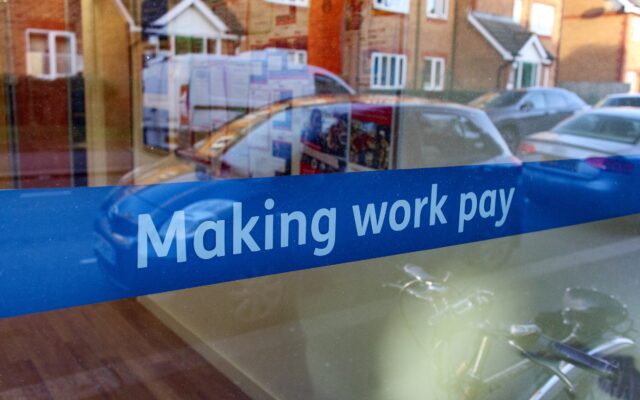If someone is unhappy with a decision on their claim for a benefit, they have the right to challenge it. The routes for getting a decision changed apply to all the main benefits.
The first way is via a review, considered by the decision-making body, which will be the Department for Work and Pensions (DWP), HM Revenue and Customs or the local authority.
There are two types of review.
Claimants can apply for an “any grounds review” – called a “mandatory reconsideration” – after a decision has been made on an initial claim or to change a benefit award.
They should request this within one month of the decision or within 30 days for tax credits.
The claimant can request a mandatory reconsideration in writing or by telephone. Any telephone application should be followed up in writing.
Those claiming universal credit (UC) can also apply for a reconsideration via their online journal.
Reasons and evidence
When applying for a reconsideration, the claimant should explain what they disagree with, for example why they should have been awarded more points in their personal independence payments (PIP) assessment. They may also want to provide evidence such as a medical report.
After the relevant authority (such as the DWP) has reconsidered the decision, the claimant will be sent notification that their award will either change or stay the same.
The other type of revision is an “any time revision”.
An example of this is a supersession. Here, the DWP makes a new decision about a claim but any change in payment is not backdated to the previous decision date.
Claimants can ask for a supersession where they want an award to be reviewed, for example when circumstances change.
So, if they get PIP but their care or mobility needs have increased, they may ask for a review to try to get a higher rate.
Clients should get advice about applying for a supersession as the outcome could be a reduction in the amount awarded or the benefit ending.
There is a right to have a supersession decision reconsidered but few claimants get their decision changed at this stage.
However, following a reconsideration decision, claimants can apply for an appeal through HM Courts and Tribunals Service. The time limit for this is one month, although late appeals may be accepted in certain circumstances.
Their case will then be considered by an independent first-tier tribunal. This deals with disputes in areas of the law such as tax, asylum and health and social care.
The tribunal can consider the appeal based on the paperwork, such as the application form and additional evidence. Claimants can request an oral hearing where they attend an appeal and give spoken evidence to support their case.
Challenging decisions beyond the realms of the first-tier appeal can be a long, difficult and often technical process.
An appeal to the upper tribunal may be possible against a decision of a first-tier appeal tribunal, but only if that decision involved an error in law.
Going to court
Some decisions or actions by public authorities can be challenged only through legal processes. A high court judicial review may be possible, especially where there is a public interest in a welfare benefits case.
A recent judicial review involved a legal challenge by some disabled people after they had a significant reduction in their benefits when they had to transfer from their legacy benefits to UC.
The nature of any work and its duties may raise doubts over entitlement to disability benefits
Realistically, a judicial review can usually only be taken forward by a legally qualified practitioner. However, welfare campaigning charity the Child Poverty Action Group is able to advise professionals on where to start on this.
If a problem falls outside the remit of reviews and appeals, such as benefits maladministration, a separate complaint can be made to the relevant authority.





